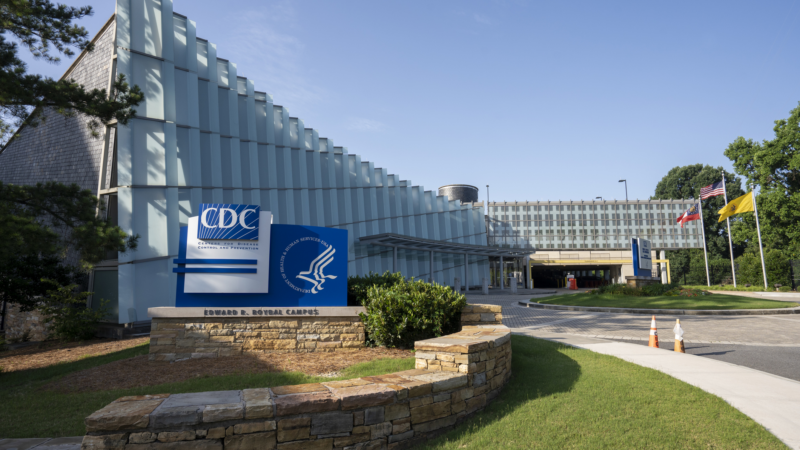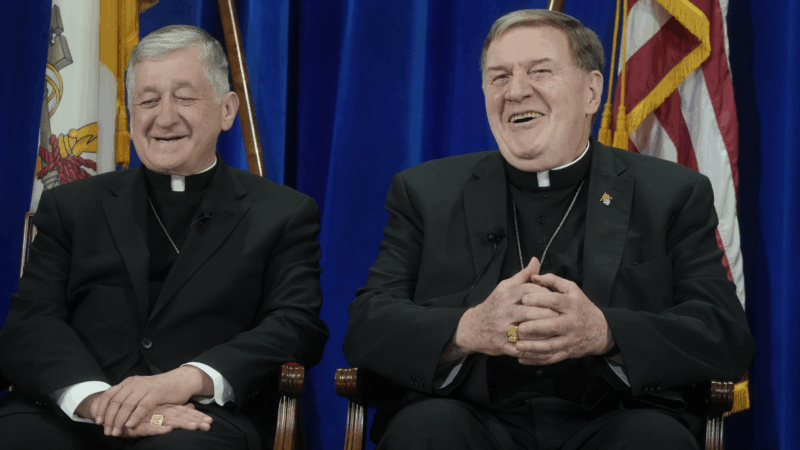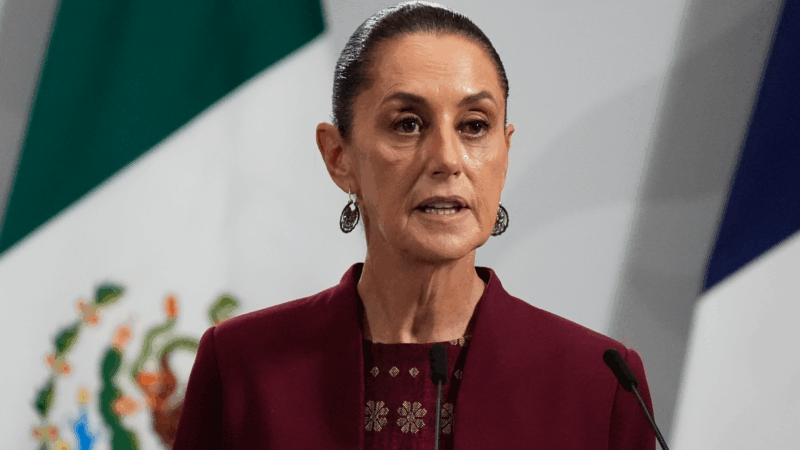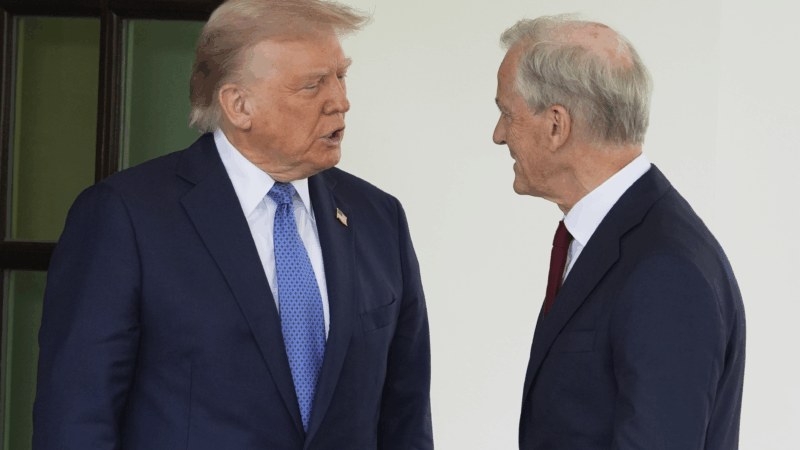Unease grows at the CDC as Trump administration keeps grip on research, messaging
The situation is far from normal at the Centers for Disease Control and Prevention, current and former CDC officials tell NPR, even as a clampdown on external communications is starting to ease. New layers of review from political appointees installed by the new Trump Administration remain in place amid fears of massive job cuts at the agency.
“At this point, the administration is controlling what topics may be covered and which may not,” says a senior CDC official, requesting anonymity to speak about internal discussions because they are not authorized to speak for the agency.
Instruction about what’s permitted is largely being conveyed verbally, often in phone calls, rather than being relayed in writing or emails, the current officials said. Leadership at the Department of Health and Human Services continue to keep close tabs on the information coming out of the agency and are restricting what career scientists can publish.
An internal memo sent this week to some CDC staff and reviewed by NPR states that “language in mass external communications must be compliant with Executive Orders.”
The document notes that “if in doubt, err on the side of requesting approval.”
According to the document, “areas where business can resume” include: communications regarding urgent public health needs when the safety of U.S. citizens is immediately threatened; advisories for clinicians sent via the Health Alert Network; “regulatory or statutorily required communications;” travel health notices; and day-to-day business of grants.
The fate of some scientific research may be in jeopardy, though.
Authors who’ve submitted manuscripts are being instructed to ask journal editors to withdraw them if they are in conflict with Trump’s executive order on gender and “cannot be adjusted to align with EO requirements,” according to the memo. If some of the other authors aren’t federal employees, CDC authors are “advised to request to withdraw their names from the author line.”
Other CDC staff have heard similar messages that are even broader in scope. On a call with CDC leadership on Tuesday, a senior CDC official was told that the directive applies to all papers, regardless of the topic — and that they are barred from submitting any papers to outside journals for consideration, for the time being.
Research from CDC scientists covers a very broad range of health topics from infectious diseases like flu, to maternal and reproductive health, to environmental pollutants to mental health and more.
“It’s discouraging and potentially chilling that articles that had made it through the peer review process needed to be pulled back,” says Dr. Anne Schuchat, former deputy director for CDC who retired from the agency in 2021. “I think we’re used to the CDC scientific communication being critical for Americans’ health, and the idea that it’s being slowed down or possibly censored is very concerning.”
It’s also a blow to the morale of scientists who’ve labored over this research, says Dr. Sonja Rasmussen, a professor at Johns Hopkins School of Medicine and a former CDC official.
“It is going to have really negative effects,” she says.
There are ongoing concerns about the Trump administration restricting what the agency communicates to the public, after the purging of data on websites and disruptions in the CDC’s Morbidity and Mortality Weekly Report. After a two-week pause, the journal resumed publication last week and published a study on H5N1 bird flu, but other research related to the outbreak has been delayed.
“I’m really concerned if the ability for CDC to communicate to the public is diminished,” says Rasmussen who previously served as editor-in-chief of MMWR.
Editors from some medical journals are speaking up against the Trump administration’s directive for scientists to pull back their submitted work because it runs afoul of the executive orders.
Dr. Alfredo Morabia, editor in chief of the American Journal of Public Health, says they wouldn’t agree to make any changes to the author or the language if an article has already been accepted.
“All of a sudden we would start to prune the content? It’s just not possible,” Morabia told NPR. “Anybody who wants sound science must disagree with this.”
There’s more flexibility with future articles, so long as the language is accurate and understandable, but he acknowledges writing an accurate article on some public health issues may not be doable, without using terms and concepts that are now forbidden.
Dr. Michael Iademarco, who served as director of the CDC’s Center for Surveillance, Epidemiology and Laboratory Services from 2014 to 2022, says he saw the first Trump administration “attempt to interfere” with the MMWR during the COVID-19 pandemic, in his role overseeing the publication.
“But in our view, they never succeeded, meaning we never did anything to change the science or the communication,” he said.
Based on conversations with current employees of CDC and HHS, he’s concerned that the new Trump administration is requiring deeper layers of reviews that could lead to “obscuring or suppressing valid scientific data from getting out.”
Have information you want to share about the ongoing changes across the federal government? Reach out to these authors via encrypted communications: Will Stone @WstoneReports.95 and Pien Huang @pienhuang.88
Edited by Carmel Wroth
Indiana completes undefeated season and wins first national title, beating Miami
Indiana bullied its way into the history books Monday night, toppling Miami 27-21 to put the finishing touch on a rags-to-riches story, an undefeated season and the national title.
Top U.S. archbishops denounce American foreign policy
The three most-senior cardinals leading U.S. archdioceses issued the rebuke in a joint statement on Monday, saying recent policies have thrown America's "morale role in confronting evil" into question.
Italian fashion designer Valentino dies at 93
Garavani built one of the most recognizable luxury brands in the world. His clients included royalty, Hollywood stars, and first ladies.
Sheinbaum reassures Mexico after US military movements spark concern
Mexican President Claudia Sheinbaum quelled concerns on Monday about two recent movements of the U.S. military in the vicinity of Mexico that have the country on edge since the attack on Venezuela.
Trump says he’s pursuing Greenland after perceived Nobel Peace Prize snub
"Considering your Country decided not to give me the Nobel Peace Prize… I no longer feel an obligation to think purely of Peace," Trump wrote in a message to the Norwegian Prime Minister.
Can exercise and anti-inflammatories fend off aging? A study aims to find out
New research is underway to test whether a combination of high-intensity interval training and generic medicines can slow down aging and fend off age-related diseases. Here's how it might work.








